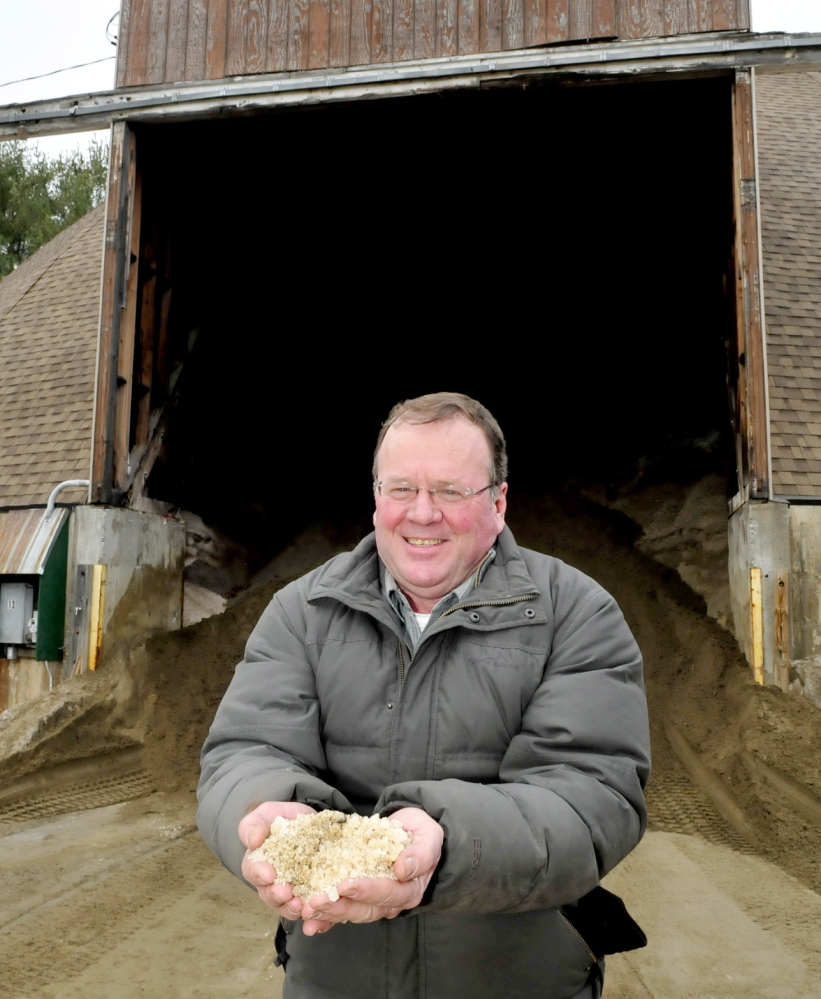SKOWHEGAN — One of the quickest ways to get people’s attention in small town Maine is to suggest that they change the way their road commissioner, town clerk or town treasurer take office — either by election or by appointment.
Appointing local officials assures accountability, some say. Electing a town clerk or a road commissioner avoids the cronyism or the politics of having an appointment made by the town, others assert.
That question was revisited Tuesday night by the Skowhegan Board of Selectmen, where the question was raised to change those municipal officials from being elected at annual Town Meeting as they are now or appointed by the town manager working with selectmen on department head appointments.
The final question would have to be brought before voters either during the annual Town Meeting this June or during the presidential election in November.
In the end Tuesday night, selectmen agreed to hold the question until the February selectmen’s meeting, giving them a chance to talk to Skowhegan residents.
Board Chairman Donald Skillings requested the question be put on Tuesday night’s agenda.
“It’s controversial,” Town Manager Christine Almand said before the meeting. “It’s been attempted multiple times. We’ve attempted it before and it hasn’t passed.”
Gregory Dore, 60, has been Skowhegan’s elected road commissioner for 23 years. He has been challenged for the job by worthy opponents every three years, but has prevailed each time.
Skowhegan Town Clerk and Treasurer Gail Pelotte was re-elected unopposed for a three-year term in 2015. Pelotte, 55, is in her third three-year term. She also worked in the town’s front office for 14 years as collections clerk and for two of those years was municipal agent and deputy tax collector.
“It’s not a Greg Dore issue,” Skillings said, noting that in future elections someone who is not qualified could unseat Dore. “No one has to have that skill set to be elected. That would be frightening to me.”
Selectmen Paul York and Siren Soren agreed, saying it would be a risk having someone run for town clerk and not have the knowledge that Pelotte has.
Skillings pointed to problems with an elected official in the town of Anson and at the Registry of Deeds at the county level as driving his move to place the question before voters.
Voters overwhelmingly approved changing the tax collector job to an appointive position in Anson in November after the former elected tax collector, Claudia Viles, resigned amid a criminal investigation over missing money. An investigation by state police and the Office of the Maine Attorney General has yielded 13 criminal charges against Viles, who has pleaded not guilty to the allegations and is awaiting trial.
Conversely, New Sharon voters overwhelmingly turned down a proposal to change the town clerk and tax collector positions from an elective position to an appointive one at a special town meeting in August. Voters felt the selection of the clerk and tax collector was one of the powers they still had as the town’s legislative body, and they weren’t ready to give it up, New Sharon Selectman Travis Pond said at the time.
According to Maine state law Title 30-A, the only qualifications to hold the positions are that a person be a resident of the state of Maine, a citizen of the United States and be at least 18 years old.
The town treasurer is responsible for overseeing the town’s accounting, investment, billing and financial reporting activities. Day to day responsibilities include billing, money collection, the investment and oversight of town money and the preparation of financial reports for municipal officers and others.
The town clerk is responsible for elections, data collection and all records kept by the town.
The road commissioner in Skowhegan oversees the Highway Department’s annual budget of about $1.8 million, Skillings said.
In election campaigns Dore has said the job of road commissioner is not just about driving and repairing equipment and plowing and sanding town roads. He said it’s an administrative post in which experience and budgetary knowledge is essential to keeping town roads in good shape.
Skillings and other selectmen agreed, saying that point is the driving force to consolidate the departments under the town manager’s direction.
Debate over elective versus appointive positions has been ongoing for years in Maine. Most highway superintendents or road commissioners and most town clerks are appointed in Maine.
Elected officials set their own hours and locations and do not have local oversight, some contend. Making these positions appointive would mean that the town would set their hours.
When someone is an elected official, he or she works for the town as a whole, so if that person is not performing his or her job, the only recourse the town has is a recall ordinance or waiting until the next election cycle to vote him or her out of office.
An elected clerk or road commissioner is directly accountable to the people of the community and serves at the will of the people and not at the discretion of a board of selectmen, others note. The decision of electing a town clerk or road commissioner involves an electorate of several hundred people as opposed to an appointment made by only a few individuals, they say.
Doug Harlow — 612-2367
Twitter:@Doug_Harlow
Send questions/comments to the editors.




Success. Please wait for the page to reload. If the page does not reload within 5 seconds, please refresh the page.
Enter your email and password to access comments.
Hi, to comment on stories you must . This profile is in addition to your subscription and website login.
Already have a commenting profile? .
Invalid username/password.
Please check your email to confirm and complete your registration.
Only subscribers are eligible to post comments. Please subscribe or login first for digital access. Here’s why.
Use the form below to reset your password. When you've submitted your account email, we will send an email with a reset code.